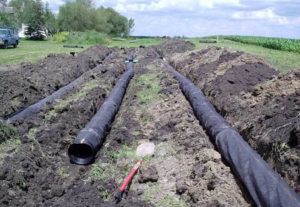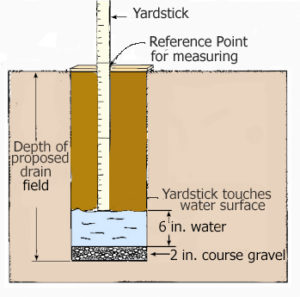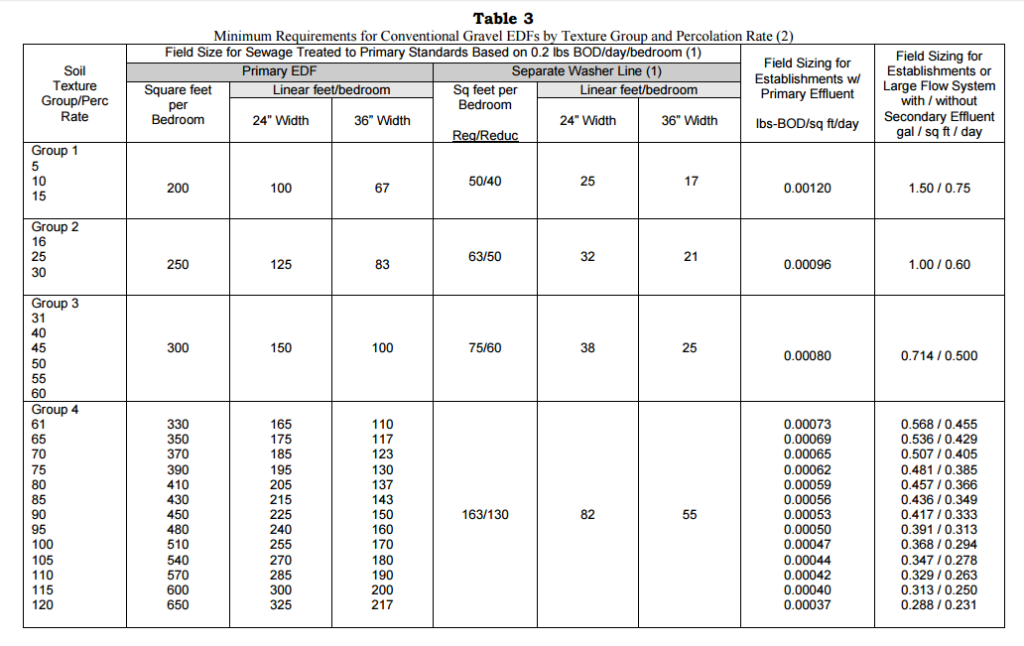Perc Test | Septic System Design
Perc Tests & Soils Testing are conducted in order to determine if sewage from a septic system will soak (percolate) into the ground in an onsite septic system. While percolation testing and soil borings are not technically considered land surveying, land surveyors are one of three professionals that are qualified to perform these tests.
Professional Soil Classifiers and Professional Engineers (with soils experience) are also qualified to determine the suitability of soils for a septic system. In Alabama they can evaluate the soils without performing a perc test.
If a perc test (sometimes spelled as perk) is done by a land surveyor, the first step is determining what depth to do the test. The 5-foot deep soil boring is done to determine this depth. The soil boring might indicate seasonal high water indicators or rock, which are both a limitation to field lines.
Once that is determined the perc test hole is dug out to that level.
The surveyor uses a little gravel in the bottom of the hole and fills the hole up and keeps it saturated for at least 4 hours. After the saturation time, the water in the hole is taken down to about 6-inches depth. We then measure how much the water falls during each 30 minute period, for 4 hours, or until the percolation rate stabilizes.
The percolation test results will determine the length of field lines needed.
Alabama Department of Public Health – Appendix A Table 3
This table provides the required length of field lines based on the perc rate obtained.
Using the above Table 3, a 3 bedroom home with a percolation rate of 50 minutes per inch would require 300 linear feet of effluent field lines. This is for conventional gravel field lines in a 36-inch wide trence.
 Using 10-inch gravelless pipe (SB-2) would allow you to use 24-inch trenches, eliminate the gravel, and place the system shallower in the ground.
Using 10-inch gravelless pipe (SB-2) would allow you to use 24-inch trenches, eliminate the gravel, and place the system shallower in the ground.
If you choose to use another approved field line type (EZ Flow, Infiltrator, Multi-pipe) the length may be reduced. Speak to the Health Department about this, and make sure the septic system installer is familiar with the type of field lines chosen.
If you are in a situation where a conventional system won’t work, an Engineer designed septic system may be required to overcome your site limitations. Some of these limitations are slow percolating soil, high ground-water, rocky soils, steep slopes, or limited area to place the septic system.


